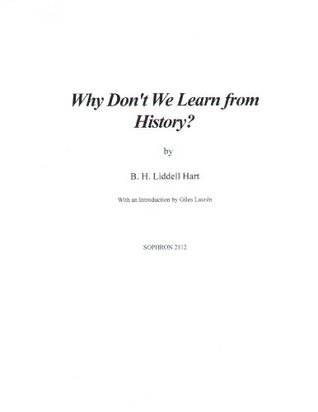More on this book
Community
Kindle Notes & Highlights
The object might be more cautiously expressed thus: to find out what happened while trying to find out why it happened. In other words, to seek the causal relations between events.
History can show us what to avoid, even if it does not teach us what to do, by showing the most common mistakes that mankind is apt to make and to repeat.
"Fools," said Bismarck, "say they learn by experience. I prefer to profit by other people's experience."2
The study of history offers that opportunity in the widest possible measure. It is universal experience, infinitely longer, wider, and more varied than any individual's experience.
The Chinese especially regard age with veneration, and hold that a man of eighty years or more must be wiser than others. But eighty is nothing for a student of history. There is no excuse for anyone who is not illiterate if he is less than three thousand years old in mind.
"There are two roads to the reformation for mankind, one through misfortunes of their own, the other through the misfortunes of others; the former is the most unmistakable, the latter the less painful . . . we should always look out for the latter, for thereby we can, without hurt to ourselves, gain a clearer view of the best course to pursue
The practical value of his advice has been impressed on me in my own particular sphere of study.
owed more to this practical application of the historical method than to any brain wave of my own.
Direct experience is inherently too limited to form an adequate foundation either for theory or for application. At the best it produces an atmosphere that is of value in drying and hardening the structure of thought. The greater value of indirect experience lies in its greater variety and extent. "History is universal experience," the experience not of another but of many others under manifold conditions.


